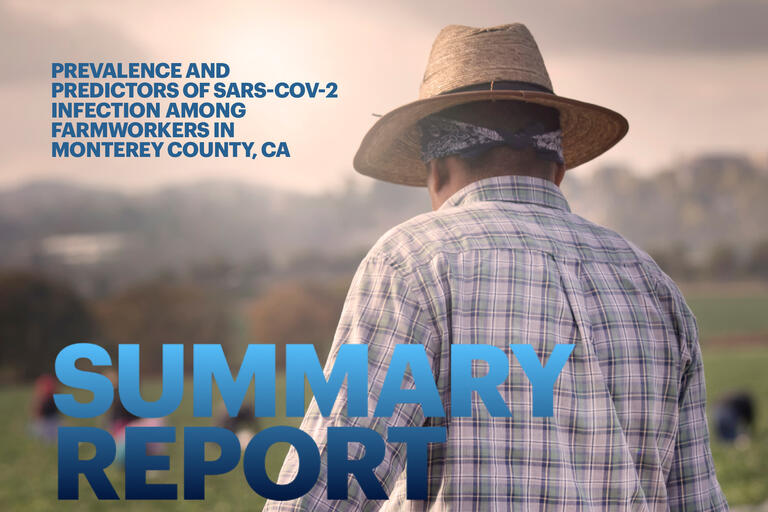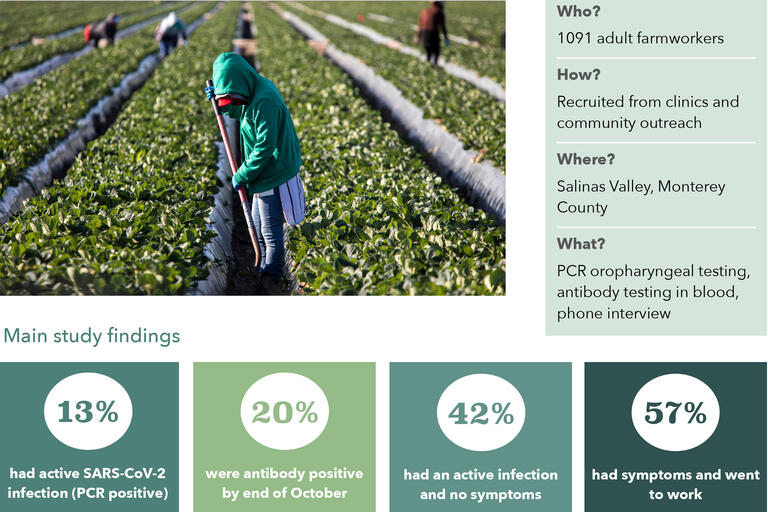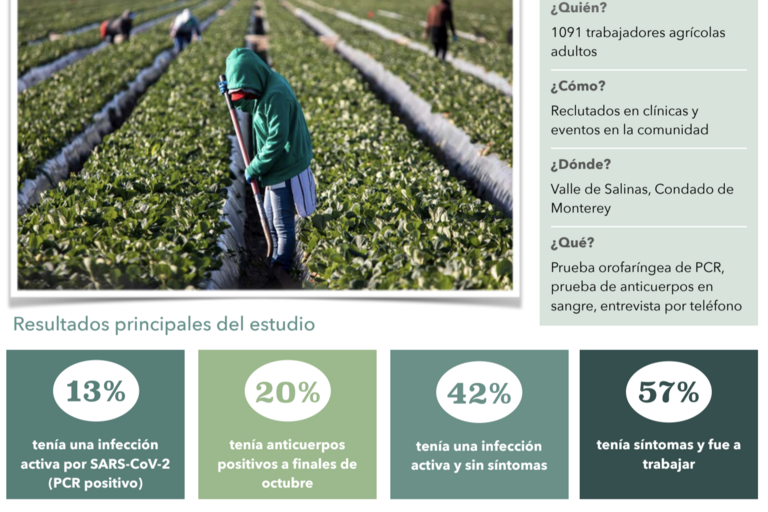United States farmworkers ensure the continuity of the nation’s food supply and were deemed essential workers during the COVID-19 pandemic. Latinos, including those in farmworker communities, accounted for a disproportionate share of COVID-19 cases. We conducted two studies to examine the burden of the COVID-19 pandemic on California farmworkers.
In July 2020, we launched a collaborative effort between Clinica de Salud del Valle de Salinas (CSVS) and the UC Berkeley School of Public Health to understand the extent and causes of SARS-CoV-2 infection among California farmworkers in the Salinas Valley area of Monterey County. The goal of the study was to identify risk factors of infection among California farmworkers to inform evidence-based preventative strategies in this vulnerable population of essential workers. We enrolled 1,091 adult farmworkers, tested biosamples for current and past COVID status, and conducted a thorough phone interview to learn their occupational, household, and personal risk factors for COVID-19.
In 2022, we conducted a follow up study in collaboration with UC Merced, Clinica de Salud del Valle de Salinas (CSVS), and the Kaweah Delta Medical Center in Tulare County to understand the prevalence of Long COVID among farmworkers. We enrolled 297 adult farmworkers from Salinas Valley and Tulare County, tested biosamples for past COVID status and indicators of current health, and conducted a thorough phone interview to learn about their history of COVID infections, the duration of symptoms, and their current health and well-being.



